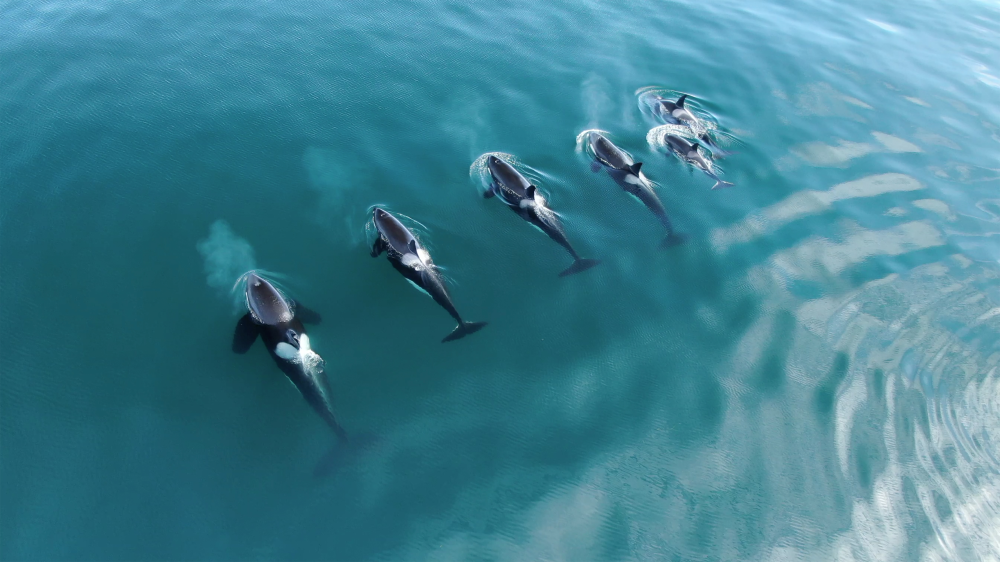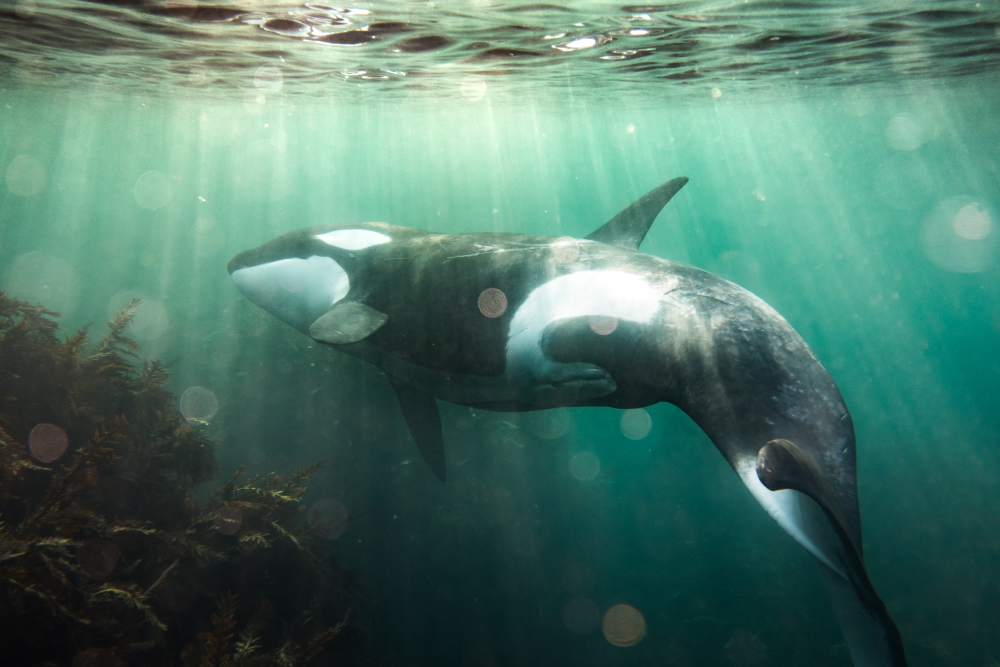Orcas, or killer whales, are known to some as the velociraptors of the sea for the incredibly orchestrated attacks they carry out in the wild. From spy hopping to wave washing, a simple seal faces a hell of a fight in getting out alive, and as a human I don’t much fancy my chances, either.
Despite their upper hand in the predator-prey game, there are very few reported cases of orcas attacking humans in the wild. People even swim with them in places like Norway and New Zealand, but given some conservation organizations strictly advise against it, is it wise?
Treat them like you would a grizzly bear.
Prof Volker Deecke
Is it safe to swim with orcas?
“I have never been in the water with killer whales and would not recommend it,” said Professor of Wildlife Conservation at the Institute of Science and Environment, University of Cumbria, and killer whale expert, Volker Deecke to IFLScience. “While they are unlikely to be overtly aggressive to people, they are big powerful animals, and can cause injury even accidentally if disturbed. Treat them like you would a grizzly bear.”
Add to that, in some parts of the world you can expect a hefty fine. In New Zealand, the Department Of Conservation Te Papa Atawhai warns that anyone swimming within 100 meters (328 feet) of a whale can expect a $10,000 fine (around $6,100 USD) under the Marine Mammals Protection Regulations 1992. While they say that “no records exist of deliberate fatal attacks on humans,” is that the case for the rest of the world?

Given their size and hunting skills, it seems hard to deny they could eat us if they wanted to.
Image credit: Ansarphotographer / Shutterstock.com
Do orcas attack humans?
An unverified report of a human being killed by an orca was included in a 2014 paper, provided by two Igloolik elders. The fatality occurred when a young man went to look at some orcas stuck in the ice, believing he could outrun them if they gave chase. An orca did just that, broke through the ice, and ate him.
Those telling the story had few details and were reportedly not there when it happened, but it could be argued that the unique circumstances of the orcas being trapped in the ice may have influenced their behavior. In any case, such attacks appear to be rare globally.
“Aggressive interactions with humans are rare, and there has never been a documented fatal attack by a wild killer whale,” wrote the authors. “There is a single documented instance of a wild killer whale biting a surfer in California in 1972; and in 2005, a killer whale charged and bumped into, but did not bite, a 12-year-old boy who was swimming in shallow water in southeastern Alaska.”
That latter example makes for a particularly curious interaction with a wild animal. The young boy wasn’t wearing a wetsuit when a group of Bigg’s (transient) killer whales entered the bay. An adult male whale was then spotted rushing towards the boy, who heard gunshot-like sounds coming from under the water, but when the whale reached him it only bumped him, rather than biting him.
So, what made the whale change its mind?

Orcas hunt very efficiently as a pod, communicating strategy and co-ordinating approach.
Image credit: Willyam Bradberry / Shutterstock.com
Why don’t wild orcas attack humans?
“Killer whales and other toothed whales have a highly sophisticated sensory toolkit that helps them determine what is and isn’t suitable prey,” explained Deecke. “Whereas sharks rely on olfaction and visual cues, killer whales use their echolocation to detect prey at ranges of several hundred metres and only switch to visual cues at close range. Whereas as a species, killer whales have a very broad diet, each individual population appears to specialise on a very specific prey type, which may explain why humans are not attacked.”
He did not match the prey image and the whale abandoned the attack.
Prof Volker Deecke
“Another factor is that humans swimming in killer whale habitat often wear a wet- or drysuit. A bare-skinned human may appear vaguely similar to, say, a seal to an echolocating predator, as the echolocation signal is reflected by the air in the lungs, stomach, etc. However a human wearing a wet- or drysuit will ‘look’ very different, as the air bubbles in the neoprene will reflect all sound.”
When it comes to our 12-year-old’s near miss in Alaska, it could be that the decision not to wear a wetsuit made him look appealing from far away, but upon closer inspection, the killer whale changed its mind.
“My interpretation is that, not wearing a wetsuit, the boy appeared to be suitable prey when the whale echolocated on him,” Deecke added, “but when the whale was within visual range he did not match the prey image and the whale abandoned the attack.”
Orcas attacking humans in captivity
Wild orcas are almost universally disinterested in pursuing humans, but when it comes to captive animals, it’s a very different story. The unsuitability of captive environments for such intelligent creatures has been widely discussed in the public forum, with films like Blackfish highlighting how it can have devastating outcomes for the animals and the trainers entering the water with them.

People have gotten close to orcas, but there don’t seem to be any confirmed cases of a fatal attack in the wild.
Image credit: Nick Grobler / Shutterstock.com
Orcas up-close
It’s important to adhere to guidelines provided by local wildlife authorities if you’re going to be out in waters visited by marine life. There are, however, the lucky few out there that get to see these magnificent animals in the pursuit of their research, and as Deecke said, killer whales really can put on an impressive – albeit slightly intimidating – display.
“I have been around killer whales in small inflatables during several attacks on marine mammals,” he said. “On occasion, individuals came over to inspect the boat, surfacing in close proximity and often exhaling particularly forcefully.”
“I remember that on one occasion a large juvenile opened her mouth and showed off her teeth before diving under the boat. Witnessing their strength and power at close range is certainly intimidating and I had no desire to dive in!”
Hear, hear.
Source Link: Do Orcas Attack Humans? Reports From The Wild Are Very Rare